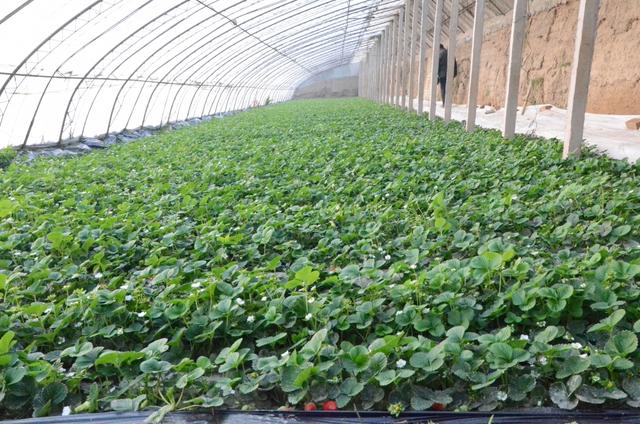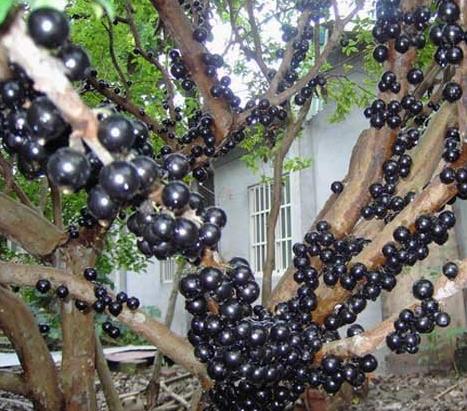Dragon fruit planting has come up with another brilliant move!
The dragon fruit is a perennial climbing succulent plant of the cactus family. It is a tropical and subtropical fruit. It likes light and shade, heat and drought, fertilizer and barren. It grows rapidly in a warm, humid and well-lit environment. It can withstand 0 ℃ low temperature and 40 ℃ high temperature. It can adapt to a variety of soils. Let's take a look at the planting conditions of dragon fruit.
Temperature
Temperature is almost the decisive factor of dragon fruit, and its origin is tropical, which makes it a typical tropical and subtropical fruit, which is not afraid of high temperature but low temperature. The planting area requires an average annual temperature of not less than 18 ℃, an average temperature of not less than 8 ℃ in January, an extremely low temperature of-3 ℃, and a duration of no more than 6 hours. The optimum growth temperature is 25-35 ℃. The growth will stop when the temperature is lower than 10 ℃ and higher than 38 ℃, and the plant will be resistant to stress with the characteristic short dormancy.
Soil
Dragon fruit is a kind of plant with strong vitality, which has a wide range of adaptability to soil, and can grow well in mountain, dry land, semi-dry land, stony mountain, wasteland and waterlogged lowland, especially the dragon fruit grafted with local ruler, its adaptability is more extensive. Although dragon fruit has a wide adaptability, it still has the most suitable Ph soil environment. Generally speaking, dragon fruit grows best in neutral or slightly alkaline soil, that is, the ph value is between 7.0 and 7.8. Therefore, for the soil planted in the soil where chemical fertilizer has been applied many times, it is suggested that the soil should be slightly alkalized with plant ash, lime, clam shell powder and so on.
Moisture content
Pitaya is a drought-tolerant plant, but it needs plenty of water for its growth. if the pitaya is short of water for a long time, it will cause the growth of pitaya to stagnate, and even the original stout fleshy stem will slowly wither. The period from May to November of each year is the flowering and fruiting period of dragon fruit, at this time, the water requirement of dragon fruit plant is larger, especially in the fruit expansion period, and the water holding capacity in the soil should be kept at 50-80%. Similarly, if there is too much water in the soil, especially the lack of oxygen, the roots will rot easily and the plants will die if they are flooded for more than half a day.
Light
The dragon fruit is a typical positive plant, which likes warm direct sunlight. If the sunlight is long and sufficient in a period of time, the photosynthesis is especially exuberant, the flesh stem is stout and green, the flowers are many and fruits are large and productive, otherwise the amount of fruit is obviously reduced. Therefore, it should be planted in open wasteland, especially on sunny slopes. The optimum light intensity above 8000 and less than 2500 had a significant effect on nutrition accumulation. For the more mature branches, concentrated high-intensity direct sunlight, if the time is too long, the accumulated heat can not be lost, it will cause sunburn in some dragon fruit branches.
Fertilizer
In the early stage of planting, dragon fruit uses less fertilizer than many traditional fruits, but this does not mean that dragon fruit does not need a variety of nutrients. On the contrary, due to the fast growth rate and high yield per mu, the fertilizer needed in the whole growth cycle must be adequate. Sufficient nitrogen fertilizer should be supplied in the early stage of growth to help the plant grow rapidly, tall and strong, with more branches, and in the middle and later stage of plant growth, more balanced application of nitrogen, phosphorus and potassium fertilizer should be applied to increase the photosynthesis of the plant. promote early flowering and increase the content of protein and vitamins in fruit.
- Prev

Cold air strikes, greenhouse planting should pay attention
Old Du had planted two strawberries in greenhouses for seven or eight years. However, because he had not systematically learned about strawberry planting techniques, some of them were...
- Next

Planting and cultivating skills of tree grape
Tree grape planting and training skills 1. Tree grape planting tree grape scientific name Jiabao fruit, also known as Zhenbao fruit, quasi-love god wood, etc., native to South America, for peach gold.
Related
- Fuxing push coffee new agricultural production and marketing class: lack of small-scale processing plants
- Jujube rice field leisure farm deep ploughing Yilan for five years to create a space for organic food and play
- Nongyu Farm-A trial of organic papaya for brave women with advanced technology
- Four points for attention in the prevention and control of diseases and insect pests of edible fungi
- How to add nutrient solution to Edible Fungi
- Is there any good way to control edible fungus mites?
- Open Inoculation Technology of Edible Fungi
- Is there any clever way to use fertilizer for edible fungus in winter?
- What agents are used to kill the pathogens of edible fungi in the mushroom shed?
- Rapid drying of Edible Fungi

